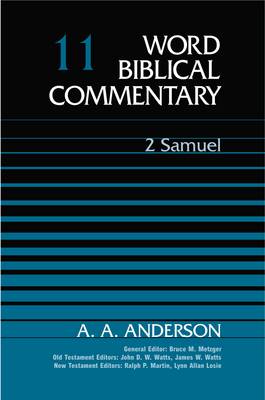Word Biblical Commentary
2 total works
The Book of2 Samuel, which tells the story of David, Israel's greatest king, declares A. A. Anderson, is a central book in Scripture. It has served as a direct source for or influence on the books of Kings and Chronicles, the Prophets, and the Psalms, as well as the New Testament, and references to David can even be found in Gen. 49:10 and Num. 24:17, as Anderson has documented.
Although 2 Samuel begins with the death of his predecessor, Saul, and follows through to David's old age, the so-called Succession Narrative comprises most of the story in the book, telling how David built his kingdom and survived all threats to its continuity. It culminates in the final act of placing Solomon on the throne, which spills over into 1 Kings 1-2.
Anderson considers the Succession Narrative to be an apology-an official interpretation of significant events, not a eulogy written to the greater glory of either David or Solomon. Rather, it was intended to show that David, in spite of a series of near disasters, was not under a curse; and it maintains that Solomon was the rightful heir to David's throne, even though popular expectations as well as Solomon's youth and parentage apparently led many contemporaries to question that judgment.
The issue was not "Who of David's sons will be king?" the author points out, but more likely " Is there any of David's sons fit to sit on the throne of David?"
The commentary offers a full general bibliography with additional specialized listings of up-to-date bibliographies at the beginning of each chapter and of each section of the Introduction. The Introduction discusses:
The literary history of2 SamuelSamuel's relation to the books of Joshua, Judges, and KingsThe Succession NarrativeThe text of2 Samuel and its researchThe use of2 Samuel in the Scriptures.The volume provides a fresh translation with detailed explanatory notes concerning original word choices. Carefully evaluating textual evidence from the Masoretic Text, the Septuagint, Qumran texts, the Targums, and Latin texts, Anderson holds that no one of these has a monopoly as "the best witness" to the original text. Each variation is thus evaluated for the contribution it can make.

